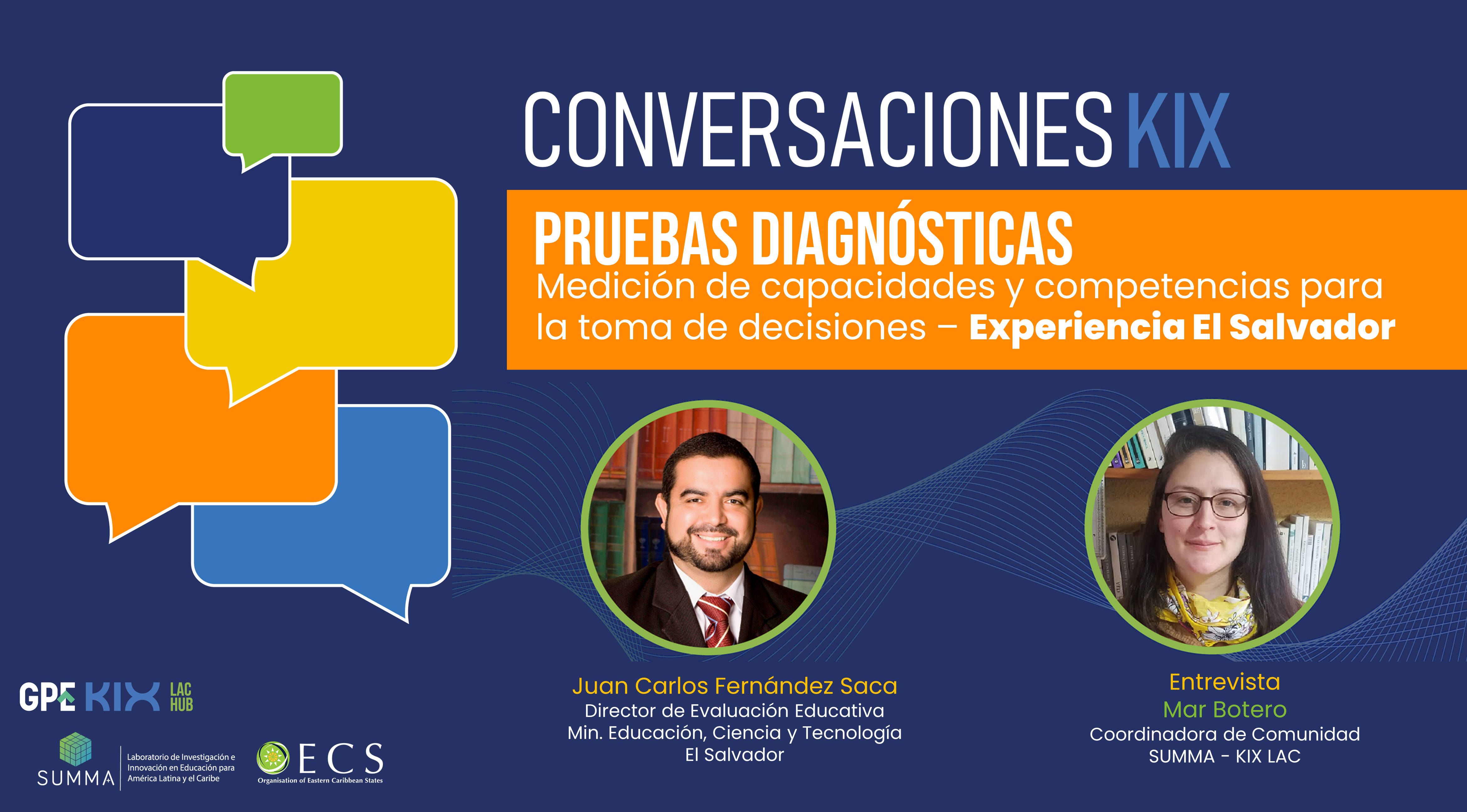
The ninth edition of KIX Conversations was attended by Juan Carlos Fernández Saca, National Director of Educational Evaluation of the Ministry of Education, Science and Technology of El Salvador and KIX LAC Hub representative for this country, who was interviewed by Mar Botero, Community Coordinator, KIX LAC.
El Salvador, like the rest of the Latin American countries, was faced with great educational challenges as a result of the COVID-19 pandemic since the beginning of 2020, which implied the redesign of assessment strategies, especially those of the assessment continuity, which implied switching from taking the PARES assessment test for students during the last year of secondary school in person and on paper to taking it online; but in order to do so, accessibility to the Internet and electronic media had to be guaranteed to 100% of the students.
For this purpose, and as a first measure, the structure of the test was modified, by designing items that the students could not easily find the answers for using a search engine such as Google, but that on the other hand, they could demonstrate how they applied their knowledge through their answers. Next, the government delivered computers to students in the public sector, and an agreement was reached with telecommunications companies so that students would have free access to the Internet on the test day, which allowed approximately 95% of the total number of students being assessed, equivalent to 75,000 students, to take the test.
In this sense, and thanks to the positive results obtained through this new form of assessment, the PARES test changed its name to AVANZÓ, and went from providing results in four basic areas: math, language, natural and social sciences, to include two additional elements: a socioeconomic questionnaire and a vocational orientation questionnaire.
Looking to the future, the Assessment Directorate intends to generate and develop a comprehensive holistic assessment model for early childhood that allows measuring learning progress for boys and girls in the earliest school ages, with the objective of rethinking and restructuring pedagogical strategies from the first years in school, since it is essential to have assessment tools that can capture this information.
DIAGNOSTIC TESTS | For students from third grade to second year of high school
